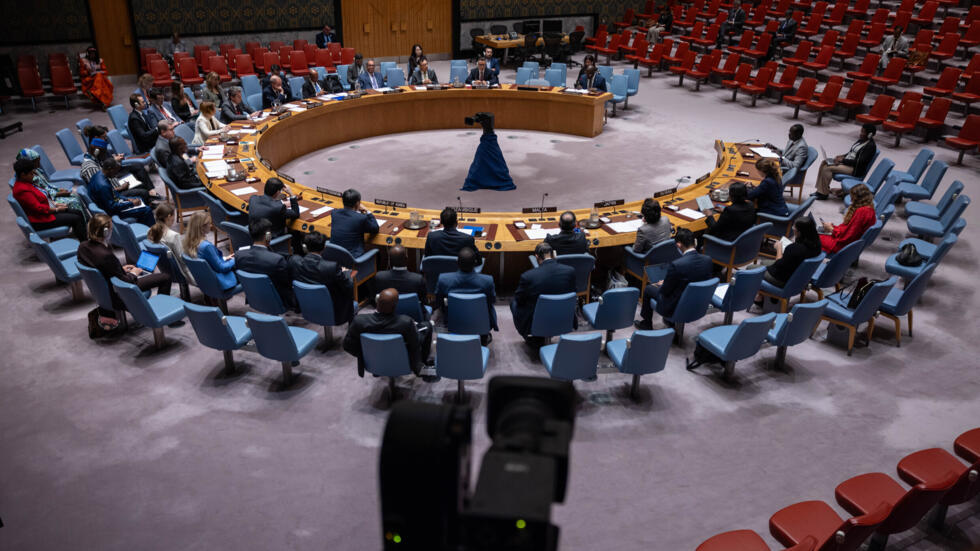US Pushes for Permanent UN Security Council Seats for Africa, India, Japan, and Germany

In a bold move that could redefine global governance, the United States has called for significant reforms to the United Nations Security Council (UNSC), proposing new permanent seats for African nations, as well as for India, Japan, and Germany. These reforms would be the first major overhaul to the UNSC in decades, aiming to address long-standing demands for better representation of developing nations and emerging powers. However, the U.S. has made it clear that any new permanent members would not be granted veto power, which has long been a contentious issue.
A Call for African Representation
The U.S. proposal seeks to add two permanent seats for African countries, which currently hold three non-permanent, rotating seats on the council. The existing setup allows African nations to participate in the UNSC, but only for two-year terms without the same level of influence enjoyed by the five permanent members— the U.S., China, Russia, France, and the UK. These five have veto power, allowing them to block any UNSC resolution.
Linda Thomas-Greenfield, the U.S. ambassador to the UN, announced the proposal at the Council on Foreign Relations, emphasizing that African nations deserve a stronger voice in global decision-making. This move is in line with growing global recognition that Africa's geopolitical importance, population, and economic potential warrant greater representation on the world stage.
However, the U.S. is firm in its stance that these new African members should not have veto power. Washington argues that expanding the veto would risk further deadlock within the already divided council, where vetoes by permanent members often paralyze action on key issues like climate change and global conflicts.
Expanding Membership: India, Japan, and Germany
In addition to Africa, the U.S. reiterated its longstanding support for permanent seats for India, Japan, and Germany—three nations that have consistently lobbied for greater influence within the UN. India, with its rapidly growing economy and population, is the world’s largest democracy and has been seen as an essential player in global governance. Japan, a key U.S. ally in Asia, is one of the largest contributors to the UN budget. Germany, the largest economy in Europe, plays a central role in both the EU and NATO.
Yet, like the proposed African seats, these nations would not be granted veto power, a condition that reflects the U.S.'s reluctance to shift the balance of power within the council. The veto has been a tool of immense strategic value to the permanent members, allowing them to shape international policies according to their national interests.
A Seat for Island Nations
In another significant development, the U.S. has proposed a rotating seat specifically for small island developing states (SIDS), which have long voiced concerns over their lack of representation. These nations, often the most vulnerable to climate change, have argued that their unique challenges, from rising sea levels to economic instability, are not adequately addressed by the international community. A rotating seat would ensure that their voices are consistently heard at the highest levels of global decision-making.
The Path to Reform: A Daunting Task
While the U.S. proposal has been welcomed by many, reforming the UNSC is no small feat. Any changes to its structure require the approval of two-thirds of the 193 UN member states, as well as the unanimous agreement of the current five permanent members. This poses a significant challenge, particularly because the expansion of permanent membership without veto power has been met with resistance.
Russia, for instance, has warned African nations to be cautious of reforms that could include new Western members like Germany and Japan, arguing that such a move might perpetuate Western dominance in the council. Moscow has also raised concerns that expanding the council without granting veto power to new members would not adequately address the historical marginalization of African nations.
Additionally, some African leaders, like Sierra Leone’s President Julius Maada Bio, have called for the complete abolition of the veto. They argue that if the veto is to remain, it should be extended to all new permanent members as a matter of fairness.
Global Reactions: A Step Towards Justice?
The U.S. initiative has been largely viewed as a positive step towards addressing the long-standing imbalance in the UNSC. UN Secretary-General António Guterres has previously expressed concern over the lack of African representation on the council, and Washington’s latest proposal seems to align with his calls for reform.
Still, the road to actual change is fraught with challenges, not least the entrenched interests of the current permanent members. For the U.S., pushing through such reforms will require navigating delicate diplomatic negotiations with both allies and adversaries.
The proposed reforms also reflect broader geopolitical shifts, as nations like India and Japan continue to assert their roles as major global players. Whether or not these proposals will succeed remains uncertain, but they signal a growing recognition that the current structure of the UNSC no longer reflects the realities of a changing world.
In the end, any reform must balance the interests of emerging powers, developing nations, and the permanent members who have held sway over the council since its inception. For now, the U.S. proposal offers hope that the UNSC can be reshaped into a more inclusive and representative body, even if the road ahead is long and uncertain.


